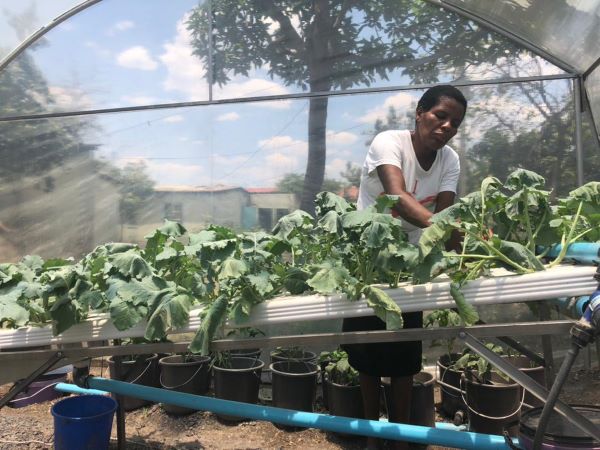By Lawrence Paganga
A total of 940 families in Gweru, Zimbabwe have ventured into small agriculture-based self-income projects under the urban resilience-building projects supported by the German non-governmental organisation (NGO), Welthungerhilfe.
The NGO this week toured the projects in Mtapa, a low-income suburb in Gweru.
Welthungerhilfe representative, Fanny Nyaunga said the projects being implemented by the residents include poultry, hydroponic gardening, and peanut butter manufacturing as part of the urban resilience project in partnership with the World Food Programme (WFP).
“We have taken some households and assisted them with at least four sustainable projects that ensure that even when the financial assistance ends, there is continuity and that families have sources of income and can sustain their lives,” he said.
A beneficiary of the hydroponic gardening project system had enabled her to realise quick harvests within a space of four weeks.
“In four weeks, l can harvest crops and vegetables through this unique farming technique,” she said.
“Given the water crisis that we face in this city, hydroponic farming is effective and has assured not only good nutrition for my family, but it is also a source of income. Hydroponics is the future! It uses less water.”
Hydroponic gardening is a method of growing plants without soil. Water is mixed with nutrients and directly goes to the plant’s roots.
Another elderly beneficiary involved in poultry farming said through the project, he was now able to take care of his orphaned grandchildren through proceeds from the venture.
“However, our appeal is for the funders to increase the number of chicks they give to each beneficiary,” he said.
Welthungerhilfe’s Nyaunga applauded the WFP for its support in championing dynamic approaches to achieve zero hunger.
The project is being run under the Urban Resilience Building project to increase the knowledge of hydroponics farming.








